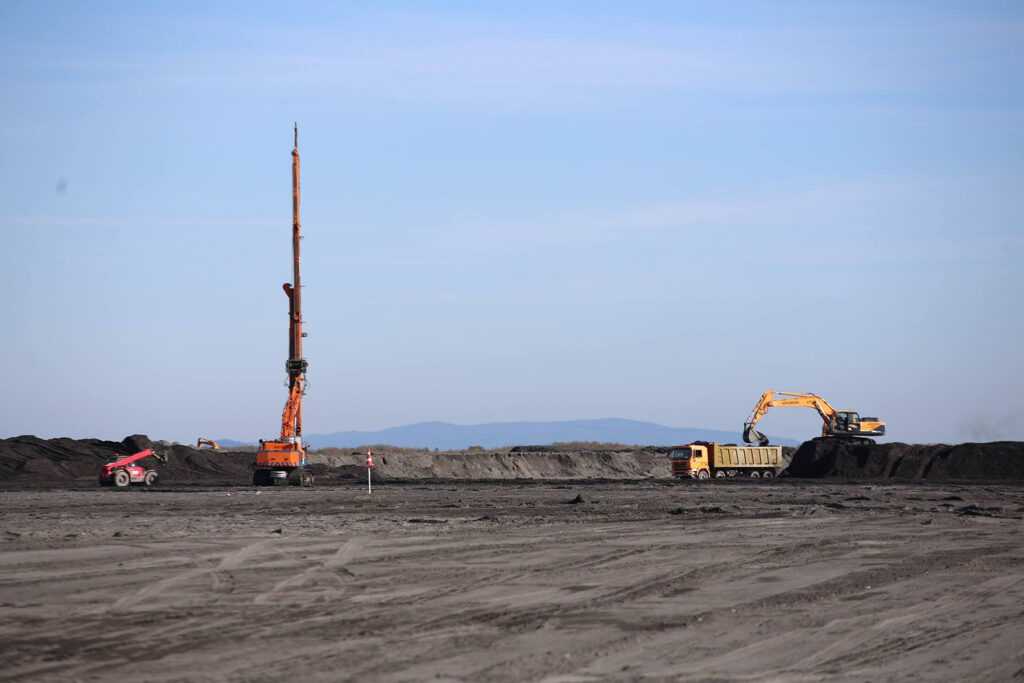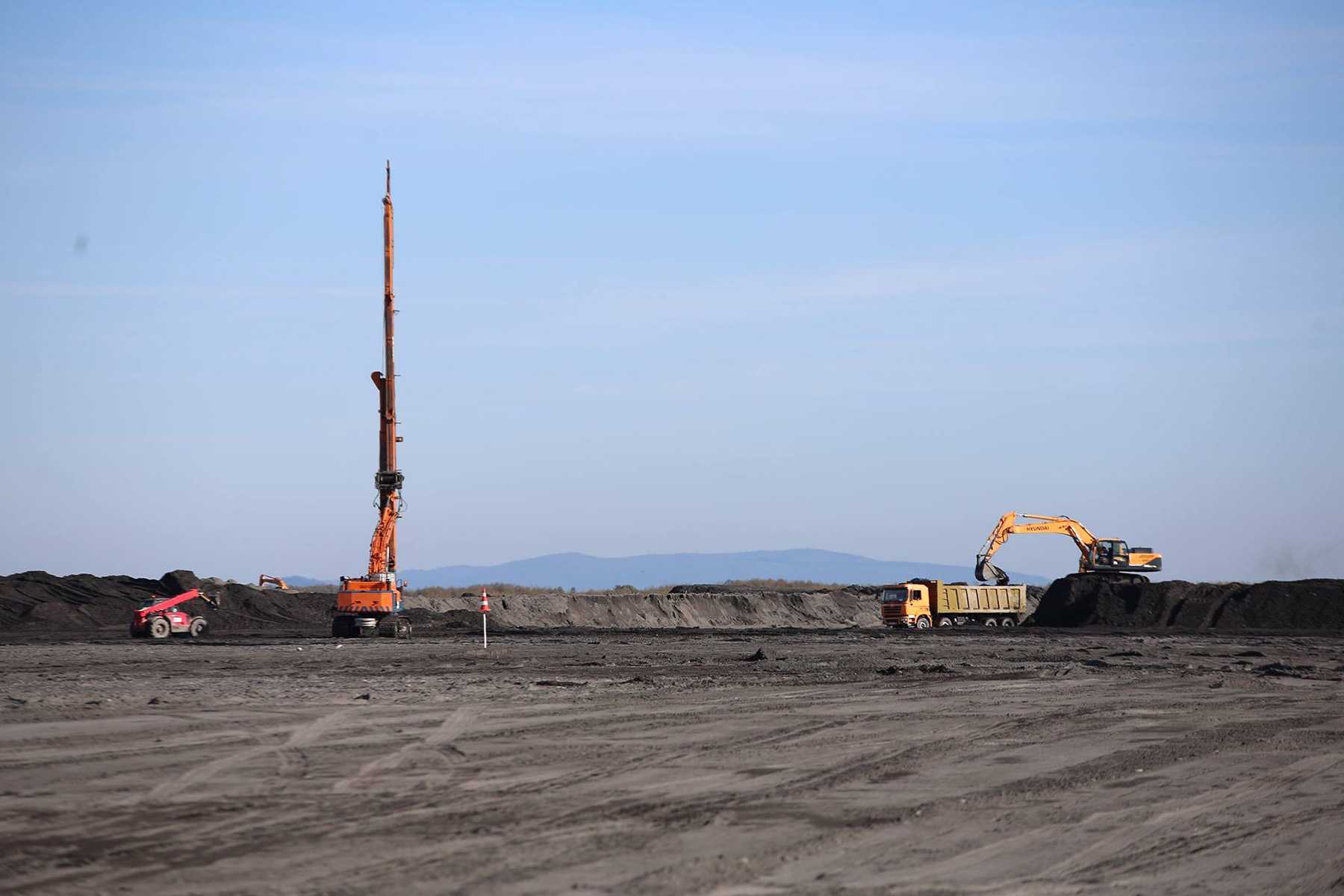Can China revive Georgia’s long-stalled Anaklia Port, and at what cost?
While new Chinese funding has appeared to reinvigorate the long-stalled and controversial deep-sea port in Anaklia, scepticism remains.

Long gone are the days when Georgia, once the frontrunner of the Caucasus and leader of the post-Soviet race, promised the world bold new projects in the wake of the bloodless Rose Revolution. Among them was Lazika, a city envisioned on the Black Sea coast, intended not only as a modern urban hub but also as a political gesture — an invitation to estranged Abkhazians to seek new opportunities through jobs and trade.
Lazika never materialised, but its successor — the Anaklia Deep-Sea Port — has endured years of turbulence. Conceived as a strategic gateway linking Europe and China, the project has weathered the fall of Mikheil Saakashvili’s government, the democratic transfer of power, and constant political infighting.
Despite its potential, it has never gained the trust of billionaire and Georgian Dream founder Bidzina Ivanishvili. Whether during his official tenure or his behind-the- scenes influence, Ivanishvili repeatedly downplayed Anaklia’s prospects, urging successive governments not to place too much faith — or money — into the project.
Yet, while his scepticism lingered, various prime ministers tried to revive it, keeping Anaklia frozen in political limbo and fuelling speculation that the port had become little more than a pawn in Georgia’s economic and political games.
The Anaklia Development Consortium was awarded the contract in 2016, positioning the port as a vital link on the shortest transport route between the EU and China. But in 2020, the government abruptly cancelled the deal. The consortium, led by businesspeople-turned-politicians Mamuka Khazaradze and Badri Japaridze, pursued arbitration in Washington. Earlier this year, they lost.

‘The Washington Arbitration (World Bank’s International Centre for Settlement of Investment Disputes — ICSID) has issued a decision on the Anaklia Port case and fully satisfied the Georgian government’s demands,’ the government declared. ‘This confirms that the failure to implement the Anaklia Port project is entirely the responsibility of Mamuka Khazaradze, Badri Japaridze, and their partners, and that there was no interference from the Georgian government’.
Then–ruling party chair Irakli Kobakhidze was quick to drive the point home: ‘The truth was established by international arbitration. Khazaradze and Japaridze failed the project and could not attract investors. They looked everywhere — West, East, even North — but failed. Therefore, it is their fault that the case was lost. The state is absolutely blameless in this matter’.
But Anaklia has proved unlucky for many Georgian governments. The resignation of Prime Minister Giorgi Kvirikashvili, once celebrated for the so-called ‘Kvirikashvili effect’ on business confidence, reportedly came in part over differences of opinion with Ivanishvili, including over Anaklia. His successor Irakli Gharibashvili also tried — and failed — to push the project forward.
Most recently, the government relaunched a tender for Anaklia’s development, inviting bids from major international port builders including Boskalis, DEME, Jan De Nul, and Van Oord. After 45 days, the tender was awarded to a Chinese–Singaporean consortium — a move that has sparked fresh controversy.
Economy Minister Levan Davitashvili announced that the first phase of investment would amount to $600 million. Under the deal, 51% of Anaklia would remain in government hands, with 49% going to the consortium. The partners include Chinese state giant China Communications Construction Company Limited (CCCC) and its Singapore-registered subsidiary, China Harbour Investment Pte. Ltd., supported by subcontractors China Road and Bridge Corporation and Qingdao Port International Co.
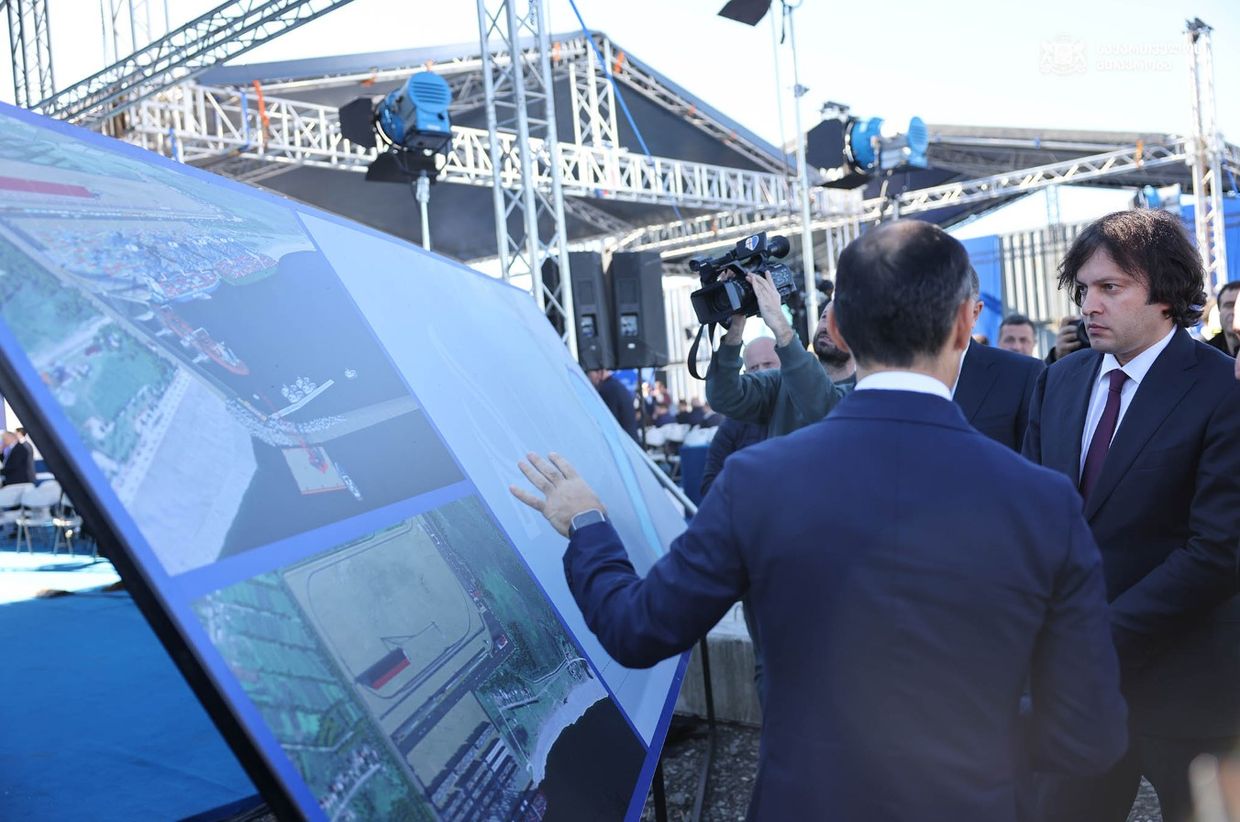
Transparency International has dedicated lengthy and thorough research to this. CCCC is one of China’s largest state-owned infrastructure companies, specialising in ports, airports, and highways. But since June 2021, it has been under restrictions from the US Treasury’s Office of Foreign Assets Control, listed for its ties to the Chinese military-industrial complex. While not subject to a full asset freeze, companies on the Non-SDN List face strict limitations on access to US technology and components, requiring export licenses for transactions.
Beyond sanctions, CCCC and its subsidiaries carry a troubling record: In 2009, the World Bank banned CCCC from its projects for eight years over corruption in the Philippines. That same year, a subsidiary paid a $19 million bribe to the president’s son in Equatorial Guinea. In Ecuador, a CCCC-built technology centre was found to be 80% structurally defective just years after opening. In 2018, Bangladesh banned China Harbour Engineering Company for bribery, while Malaysia suspended a railway project with CCCC over corruption concerns.
In Georgia, the China Road and Bridge Corporation has been active since 2018, building the Ubisa–Shorapani section of the East-West highway, financed by the European Investment Bank. Since 2021, it has also been working on the Tsnori bypass with Asian Development Bank support.
Criticism from abroad has been sharp. In 2020, the US Embassy in Tbilisi warned that CCCC’s activities abroad were marked by ‘shoddy construction, labour abuses, environmental damage, and unsustainable debt’. The US State Department reiterated the concerns this June, stressing that Georgia must ensure its sovereignty and Euro-Atlantic security are not compromised.
For many observers, Anaklia is more than an economic project; it is a geopolitical marker. Bringing in a sanctioned Chinese state company just as Georgia adopted its controversial foreign agent law has fuelled suspicions that Tbilisi is drifting away from its Western path.
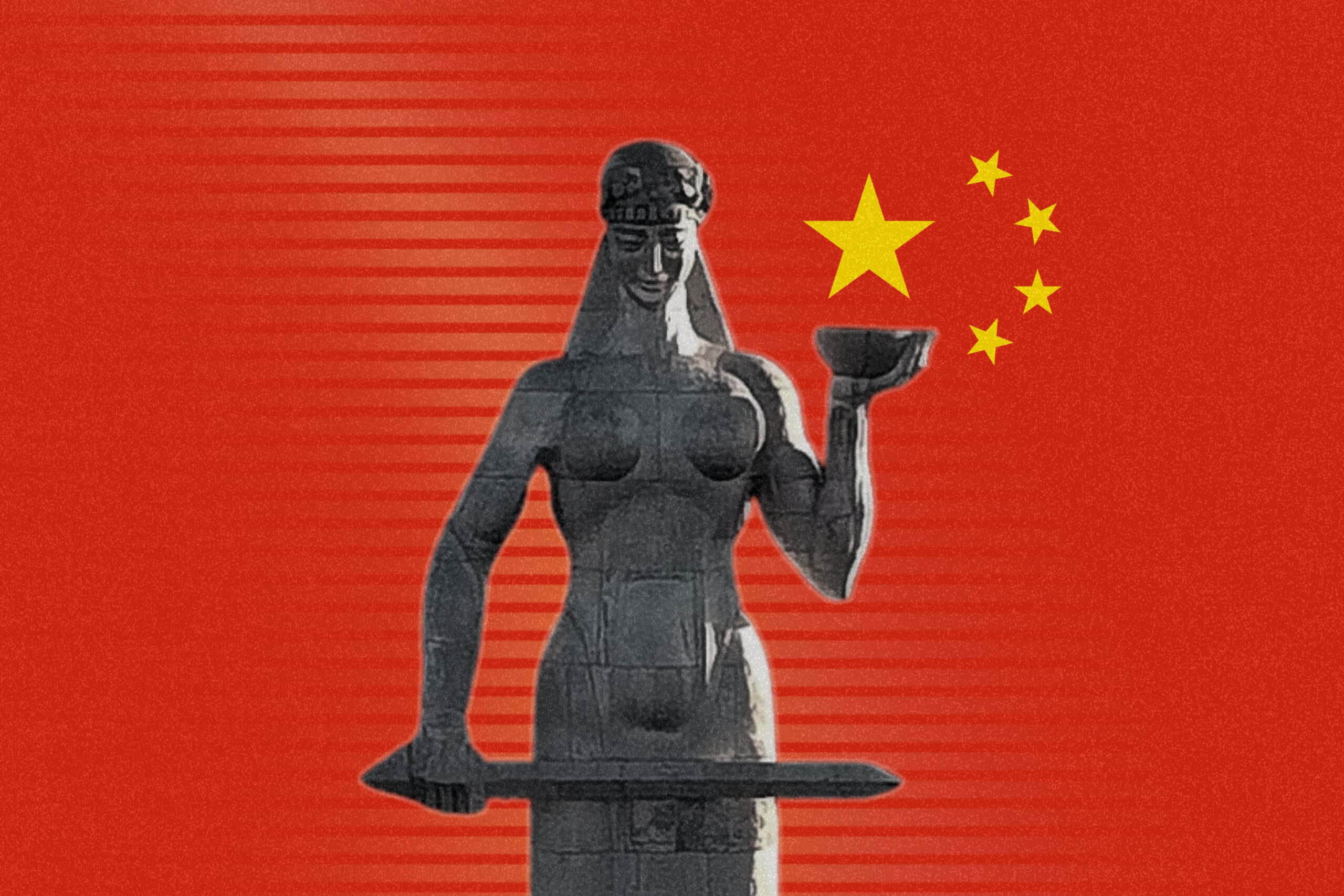
A source close to the Anaklia project echoed these concerns.
‘It was always suspicious. I am not against Chinese investments when they’re in Hong Kong or Shanghai ports, but this deal is unclear. When the US State Department says it’s sanctioned, that’s enough for me to know something is off. These Chinese companies don’t have the experience or skills to do it. And the agreement the government is offering — 51% state ownership and the rest to the investor — is not a fair deal’.
The government has sought to downplay criticism of the ownership structure, arguing that the state’s majority stake provides guarantees that should attract investors. Officials have also framed delays around Anaklia as fallout from the ongoing war in Ukraine, feeding into a broader narrative of regional instability.
Roman Gotsiridze, an opposition politician and former central banker, voiced scepticism.
‘I doubt Russia will take over or interfere. It is clearly better for the Russians if the Chinese do something there. But there is uncertainty. The Chinese don’t want to meet the demands, though they don’t specify which ones. Maybe they have their own demands. And so the matter is stuck. That’s the official version’.
Gotsiridze said that with money the government had spent on things that ‘did not matter’, they could have at least started construction themselves.
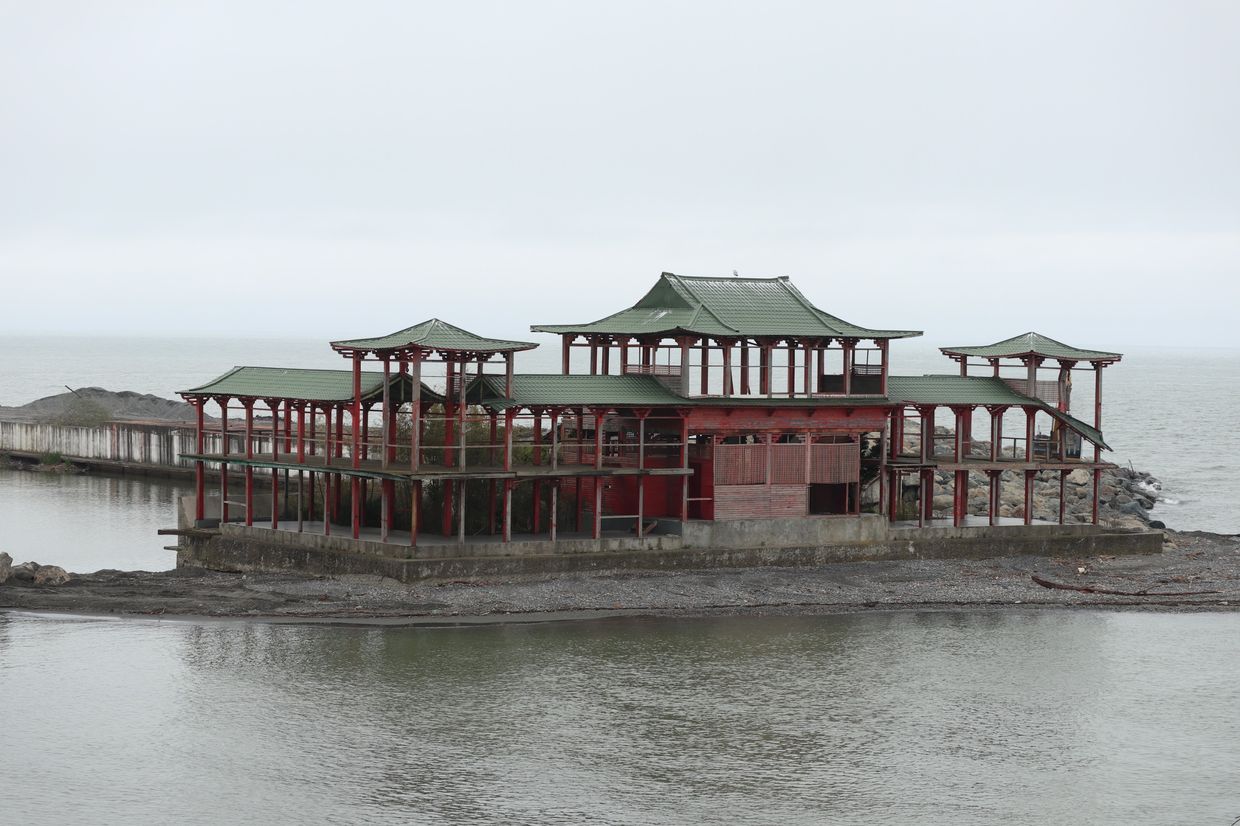
Many experts familiar with the issue agree that if the government were to build the port, it could hand over management to a third party operator.
AD Ports Group, meanwhile, has pushed forward with other projects. This year, it inaugurated the Tbilisi Intermodal Hub, Georgia’s first bonded container and intermodal terminal, linking the Caspian and Black seas as part of the so-called Middle Corridor — the shortest land trade route between Asia and Europe. Industry insiders say it is highly unlikely AD Ports would expand its role to take over Anaklia.
A Georgian government spokesperson, however, confirmed that construction works in Anaklia are ongoing — the official Facebook page for the project shows the active works ongoing, he said.
Teimuraz Zakradze, an independent analyst and supporter of the Silk Road project, said he opposes the idea of one individual or a single company owning the port.
‘I believe it should be in the hands of the market economy. People should be able to own shares of the port. Building Anaklia is a geopolitical issue — Moscow would of course hate it, while the US may complain but in reality has done little.’
For now, with investor confidence shaken, conditions uncertain, and infrastructure still lacking, Anaklia remains suspended between promise and doubt.




